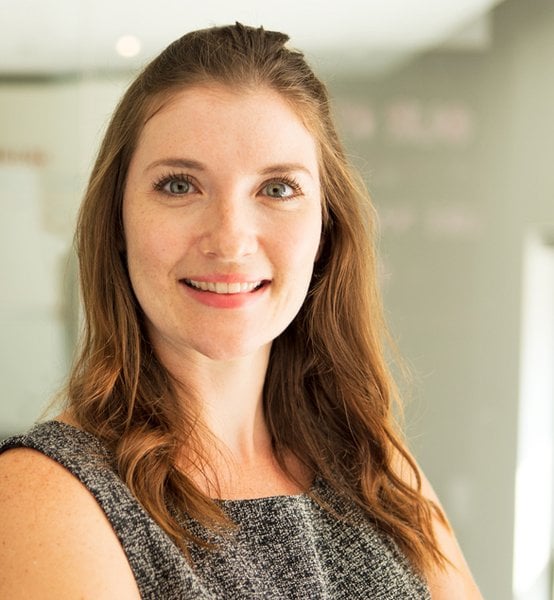
If you are not redirected within 30 seconds, please click here to continue.
Samedi: 10h – 16h HAE

If you are not redirected within 30 seconds, please click here to continue.
If you are not redirected within 30 seconds, please click here to continue.
Q&A with Young & Thrifty: Learning with Finance Blogs

Table of Contents
We recently sat down with Justin Bouchard, writer for the blog Young & Thrifty, the winner of our Best of Finance Consumers' Choice Frugal Living Blog category! Here's his take on the Canadian finance blogosphere - and why blogs are becoming such a valuable learning resource for savvy Canadian readers.
Q: Name?
My name is Justin Bouchard and our two other authors write under the pen names of Teacher Man (TM) and Young. They have chosen to use pen names because of career considerations, and the intimate financial details that they work with on a daily basis.
Q: When was Young & Thrifty launched? Was it your first foray into blogging?
Young and Thrifty was launched in 2009 by “Young” and it was her initial foray into blogging at that time. When TM and I climbed aboard, we had already been writing for the blog My University Money for some time.
Q. What information gap are you trying to fill for your reader?
We believe the reason that Young and Thrifty has done so well is the fact that there is a huge information gap when it comes to financial literacy amongst young adults today. Y & T has information for all ages, and all personal finance knowledge points. From the person who is still in school and just learning to budget for the first time, to the young adult that has the basics down and now wants to learn a little more about their investment options. As long as schools continue to largely ignore personal finance, and parents treat money as a “taboo topic” then there will continue to be a huge information gap that we try to fill.
Q. Why did you choose a blog as your method of communication?
Blogs are great in that they give a platform to everyday people that deal with everyday problems. They also allow us to interact with our audience and respond to specific questions that are floating around out there. Blogs are getting more and more creative and innovative because of the increased flexibility and user-friendliness, and this makes them really attractive to us. There are so many directions we can go and so many opportunities on the horizon!
Q. What are your thoughts about the personal finance blogosphere in Canada?
The personal finance blogosphere is a pretty tight knit group up here in the Great White North. Our willingness to promote one another and help each other out in pursuit of increased overall financial literacy is pretty neat. The great thing about blogging is that it is sort of the ultimate form of democracy. If someone is giving bad advice, or just has a pretty plain writing style, they just won’t inspire people to come back to the site and interact with them. What we’re left with is a pretty strong and diverse personal finance community that has representation from all across Canada both geographically, and demographics-wise as well.
Q. Do you think personal finance blogs provide a more user friendly alternative to finance advice and news than traditional media or advisor outlets?
That’s a tough question to answer simply because of how broad the range of media is that we’re talking about. I think that personal finance blogs as a platform have several advantages over those used by more traditional media. We can experiment with different lengths of writing, different mediums (podcasts etc.), and most of all, we can add much more of a personal tone and experience. In addition to all of that, we can interact with our audience in a way that traditional media just doesn’t facilitate. Personal finance blogs allow readers to enjoy reading about the topic with a unique focus that they appreciate and get to direct to a large extent. When you juxtapose this against the bland, generalized advice that most traditional media outlets have to provide (because they’re often trying to appeal to a massive audience) I think young people especially find our blogs more user-friendly. When you compare to the information that advisors are putting out there, we have a huge advantage in that we can truly say that we are unbiased relative to professionals that make more money by recommending certain financial strategies over others.
Q. How do you balance blogging with your 9 to 5 commitments?
There are some days when blogging becomes a bit like a side job for us, and those days you simply just carve out a piece of time and make due like most other people have to. The vast majority of days however, blogging is more like a really cool hobby where we get to help people and hopefully make a difference. When you’re interacting with people that are engaging, intelligent, and excited to learn, finding the time doesn’t seem that difficult at all.
Q. Do you have any advice for like bloggers looking to fill their own niches?
Our clichéd advice would be to simply get off of your couch … er … you don’t even really have to do that, but just take the metaphorical leap and do it. What have you got to lose? There are hardly any overhead costs when you’re talking about blogging so you’re not taking much of a financial risk. One of the things I consistently hear when I talk to other bloggers is that they thought they knew a lot about a topic when they started their blog, but once they were forced to become a “true authority” their passion for the topic and their level of mastery of the pertinent knowledge increased greatly. Starting a blog in an area you’re passionate about will help others, and almost assuredly it will help you as well. In regards to specific advice once you have started, the one tip we give out is to start making friends within your niche immediately. This was a real game changer for us as far as blogging went.
Q. What words of advice do you have for those looking to learn more about their personal finance options?
Well the first advice we’d give is simply to check out our site! (We’re not exactly known for our modesty.) But in all seriousness, personal finance really isn’t as big and scary as most people think. Since most people have been taught through example to avoid the topic at all costs, there is this weird fear of the unknown, but I’d say that about 80% to 85% of what the average person needs to know regarding personal finance could be learned in an afternoon with the right resources. If you’re like us and sort of become personal finance nerds because you’re amazed at what it can do for you, then all the better.
Q. Your slogan is "Saving Gen Y" - why do you think this generation faces such financial literacy challenges? Would you credit the popularity of finance blogs to the unique way this group seeks information and learns?
I hope that one day we’ll be able to say that blogs, search engines, and social media were able to put a big dent in the financial illiteracy that our generation is experiencing.
At this point I would hesitate to make the claim that Gen Yers are using our relative comfort with technology to our full advantage where person finance is concerned. It’s amazing to us how often we run into really smart people – people who ace the toughest courses in post-secondary education, individuals who are extremely well-read, or professionals that have prestigious jobs – only to find out they know very little about basic personal finance.
“Saving” Gen Y might be a slight exaggeration, but we really do feel that the stuff we put on the blog can make a huge difference in peoples’ standard of living over the course of their lifetime. As more and more people become comfortable with consuming their media and information online, we believe that our blog will grow and improve right along with them.
Get money-saving tips in your inbox.
Stay on top of personal finance tips from our money experts!










